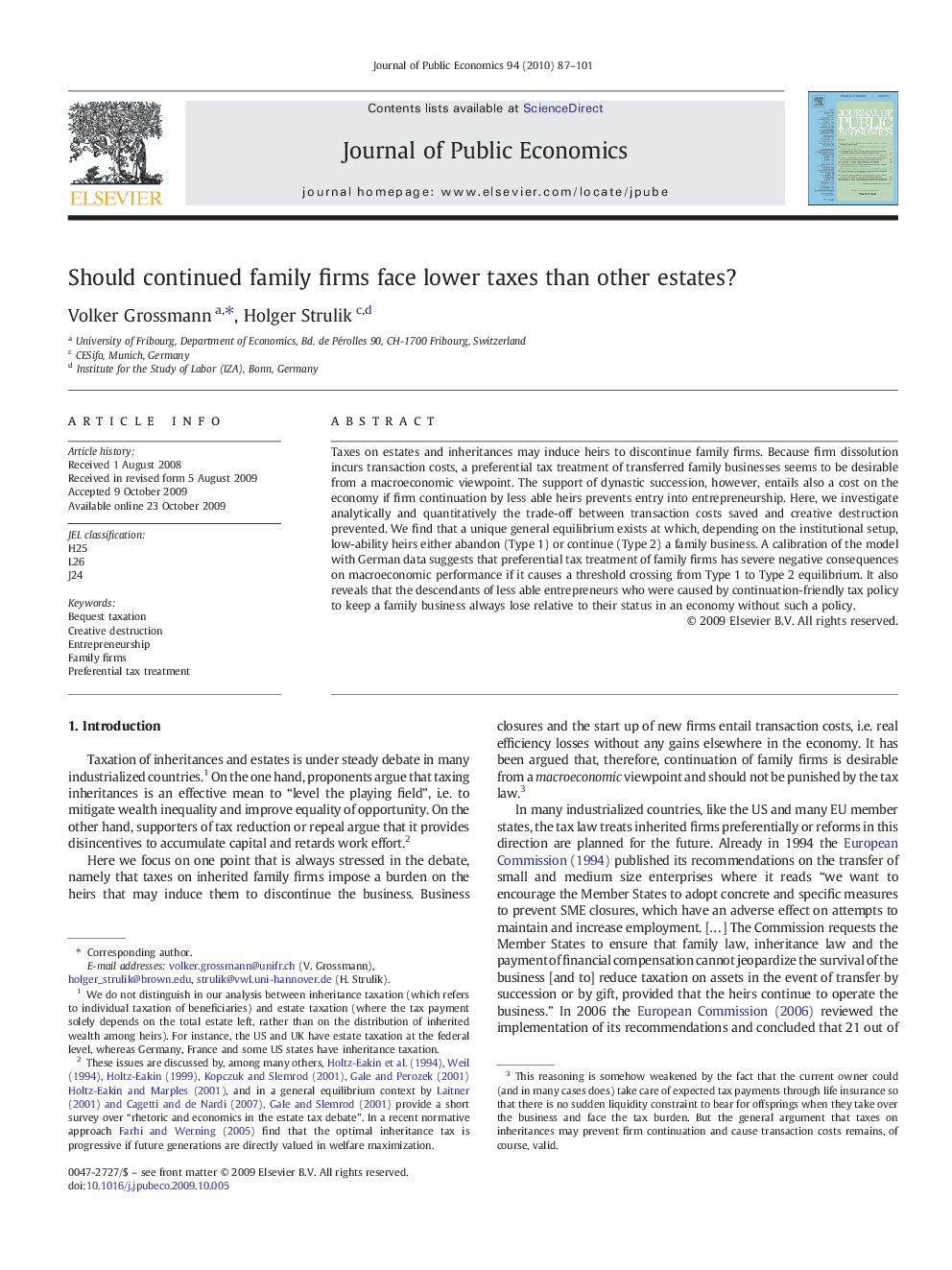| Article ID | Journal | Published Year | Pages | File Type |
|---|---|---|---|---|
| 970058 | Journal of Public Economics | 2010 | 15 Pages |
Taxes on estates and inheritances may induce heirs to discontinue family firms. Because firm dissolution incurs transaction costs, a preferential tax treatment of transferred family businesses seems to be desirable from a macroeconomic viewpoint. The support of dynastic succession, however, entails also a cost on the economy if firm continuation by less able heirs prevents entry into entrepreneurship. Here, we investigate analytically and quantitatively the trade-off between transaction costs saved and creative destruction prevented. We find that a unique general equilibrium exists at which, depending on the institutional setup, low-ability heirs either abandon (Type 1) or continue (Type 2) a family business. A calibration of the model with German data suggests that preferential tax treatment of family firms has severe negative consequences on macroeconomic performance if it causes a threshold crossing from Type 1 to Type 2 equilibrium. It also reveals that the descendants of less able entrepreneurs who were caused by continuation-friendly tax policy to keep a family business always lose relative to their status in an economy without such a policy.
